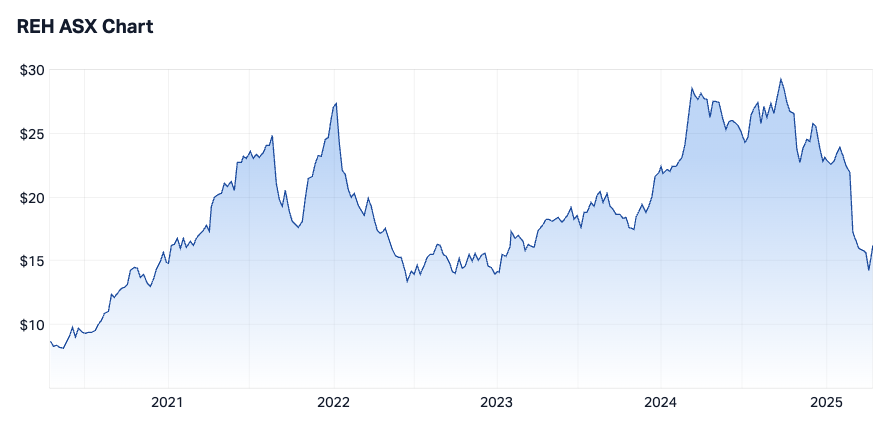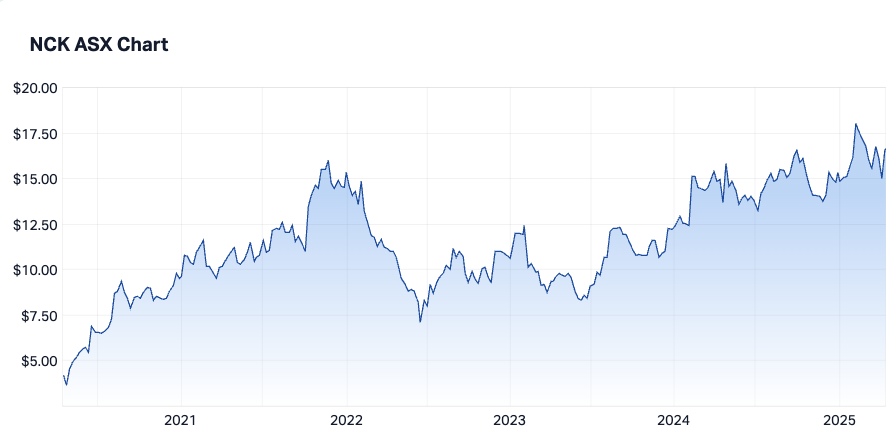Founder-led or flounder-led...and how to spot the difference
Phrases like “skin in the game”, “obsession” and “posterity” are bandied around a lot. Frankly, these terms spook me, and the words of a certain sonnet feel more relevant today than ever: “Look on my works, ye mighty and despair”, Ozymandias intones, over a vast and ruined landscape.
Founder-led companies often evoke this same paradox — their stories can inspire, or serve as cautionary tales of ego and power run amok, whether it's a small business, or all the way to a certain founder wielding a cudgel at the White House.
Nevertheless, the investment world can’t stop talking about them. Founder-led businesses, research shows, often outperform manager-led incumbent businesses. So for investors who have to balance the data, their risk-appetite, and good old-fashioned gut instinct, what are the signs to look out for to take the leap of faith, or choose poorly and crumble fast?
I asked Lawrence Lam, author of the recently published book, The Founder Effect, and Ray David of Blackwattle Investment Partners, to tell me more about the case for and against founder-led companies, and what to look out for when investing in them.
The three pillars of founder success
What defines a 'founder-led' company? Simply put, it’s when the founder owns a meaningful stake (usually ~10% or more) and holds an executive or Board seat.
Lam has boiled founder success down to three pillars he calls the 'Founder Framework'.
- Judgment: can they make bold but sound decisions?
- Alignment: are they driven by the same motivations as the owners of the company?
- Influence: can they win over their employees, customers, and the market?
A founder’s stake in a company goes beyond money - it often reflects a long-term vision rather than short-term earnings beats. As Lam puts it;
“When founders retain meaningful ownership and remain operationally involved, they tend to allocate capital with a long-term mindset.”
This mindset feeds influence. Founders who are deeply invested, financially and emotionally, tend to build cultures that attract the best talent and inspire loyalty.
Lam uses Australian software company Atlassian (NASDAQ: TEAM) as an example where its founders scaled globally by doubling down on product-led growth without a traditional salesforce, a bold move few incumbents would attempt. He also drew attention to founders providing stability and a guiding hand through volatility, pointing to Jensen Huang at NVIDIA (NASDAQ: NVDA) whose “multi-decade vision and ability to navigate seismic shifts in the tech industry is a masterclass in patient, adaptive leadership”.
Recent extraordinary market events aside, Ray David, who has been tracking the performance of founder-led companies, says there is significant evidence that they can deliver strong shareholder returns, outperforming broader market benchmarks.

Similarly to Lam’s point, he has pointed out a higher investment in innovation, and that “founders bring a deep understanding of their business and often solve problems in unconventional ways.
“Founders tend to be deeply mission-oriented. That can translate into a stronger culture, more innovative products, and a willingness to invest in long-term outcomes over short-term metrics.
He highlights that this is in contrast to professional management teams who may succumb to investor pressure to chase earnings growth through risky acquisitions, or short-term decision making.
The downsides of founder-led businesses
As Lam points out, two of the key pillars - motivation and alignment - can erode over time, be it for the pursuit of personal wealth, control, or ego. Early success can also breed cockiness, making founders resistant to change or feedback.
The biggest risk is over-dependence on one person.
When a company orbits too closely around its founder, without embedding values, processes, and a strong leadership bench, it becomes dangerously fragile. Transition periods, especially, can expose cracks.
Lam’s research into how great businesses rebound from adversity offers a telling example: LEGO. The beloved toy maker almost collapsed in the early 2000s after straying into too many unrelated products and spreading itself thin. Its turnaround was cemented by a disciplined return to its core, steered by leaders deeply aligned with the founding family’s values.
Today, LEGO remains 100% owned by the founding family and its foundation.
Other examples include Patagonia where the founder’s principles have shaped every layer of the business, and BYD in China - a founder-led, vertically integrated business that’s defied conventional business strategy to become a global force in electric vehicles.
“It’s important to look beyond the headlines — while a handful of founders dominate media coverage, many others are quietly building enduring companies,” Lam says.
Two Australian household names to watch (hint: not WiseTech or MinRes)
In his October 2024 piece for Livewire, David spotlighted four founder-led businesses he believed embodied the best traits. I asked him for an update since then, and two names — plumbing supplier Reece, as mentioned in his first report, and a new addition, furniture retailer Nick Scali — have stood out.
“Post the market sell off, we are seeing significant value emerge in some of those names we mentioned in our first report”.
He explores these in more detail below.
#1. Reece (ASX: REH)
"We believe what sets Reece apart from its competition is its operating model of the 'Reece Way', a high-performance culture emphasising quality customer service."

Since entering the U.S. in 2020, the plumbing and bathroom giant has lifted sales from $3 billion to $5.2 billion while improving margins — all in a fragmented industry ripe for consolidation.
Short-term pressures, like the U.S. housing slowdown and staff turnover at its Fortiline Waterworks division, saw Reece’s PE multiple drop from 45x to ~25x. But David sees the pullback as an opportunity; falling rates in Australia and the U.S. could reignite housing activity, setting the stage for Reece’s next growth chapter, along with a proven track record of growing its operating EBIT from $106 million in 2004 to $681 million in 2024.
# 2. Nick Scali (ASX: NCK)
"The Scali family have a history of conservative business leadership, with the balance sheet having very little debt, and significant freehold property ownership."

Known for its made-to-order lounges, with around 70% of revenue coming from customisable products and a direct supply chain spanning China, Vietnam, and Malaysia, giving them an edge on margins by cutting out middlemen and holding minimal inventory.
Notably, they acquired Plush Furniture during COVID (at ~4x earnings) and the more recent entry into the UK market by snapping up the distressed Fabb Furniture for just $3.82 AUD. Yes, less than a coffee.
With Fabb already being rebranded to Nick Scali, management expects gross margins to jump from 41% to 57-59% thanks to their proven direct sourcing model. Currently trading on a PE of 16.5x (excluding UK setup costs), Nick Scali is well-positioned to benefit from an upswing in consumer confidence and housing activity, as interest rates ease - similarly to Reece - all while trade war risks remain minimal.
What makes a great founder-led business?
Beyond being specifically founder-led company traits, Lam says that companies that have the best leadership teams "exhibit bold decision-making, a clear sense of motivation beyond money, and the ability to influence both internally and externally." Founder-led businesses often bring these traits to life in distinctive ways, as their freedom to tackle problems uniquely makes them interesting case studies with lessons that apply across all leadership teams.
Lam goes on to say that excellent management create structures that allow the business to scale without diluting culture or agility. When founders are self-aware, surround themselves with complementary leaders, and are able to program the operating system of the company, they create lasting impact.
"It’s not about centralised control - it’s about embedding the right values and operating principles across the company – a trait that recurs again and again with the best management teams around the world."
It’s an approach every investor should keep in mind, whether you're backing a founder-led business or one steered by a non-founder CEO.
Consulting firm Spencer Stuart wrote a research paper that dives into how management teams can tap into the core values of founder-led businesses by adopting a “founder-inspired” model. It’s a reminder that there’s real merit in the foresight and vision founders often bring to the table.
Governance is everything
"Investors should only own founder-led companies that uphold the highest level of corporate governance," says David.
That means a strong, independent board to keep management in check, a deep bench of aligned and capable leaders ready to carry the founder’s vision forward, and a balance sheet that’s kept on solid ground — this is especially critical since founders often prefer to reinvest heavily in their businesses. Avoiding excessive debt is key to ensuring the business can grow without taking on more risk than it can handle.
“Good governance is essential,” said AustralianSuper, as it sold its entire $580 million stake in WiseTech Global and accused the logistics software giant run by billionaire Richard White of failing to meet its expectations of proper corporate governance.
A case in point.
Spotting the red flags
As outsiders looking in, what are the red flags investors should be mindful of? And how should they respond when those warning signs start to appear?
- Founders who surround themselves with "yes" people.
- Decisions that feel ego-driven rather than mission-driven.
- Tight narrative control, dodging tough questions.
- Rapid overexpansion without infrastructure.
- Founders cashing out early, especially after media hype.
When these warning signs emerge, investors should push for answers. As David puts it:
“Is this behaviour episodic or systemic? Are there checks and balances? Is the board empowered to act?”
As institutional investors, David says that in their experience, poor governance is a significant red flag for future underperformance. When companies have breached governance standards, David’s team have subsequently sold their positions in these founder-led businesses.
"Ultimately, the goal is to back visionary founders — not unchecked ones. The best founder-led businesses balance boldness with humility and surround themselves with people who can challenge them productively."
Consider the above when you’re about to buy or sell - and choose wisely!
Lawrence Lam is the author of The Founder Effect (Wiley $34.95), a book that explores the traits possessed by exceptional management teams. It is available at all good book stores.
2 stocks mentioned
2 contributors mentioned
.jpg)
.jpg)